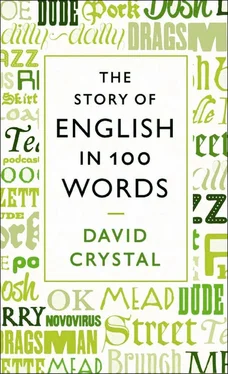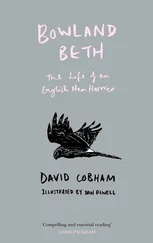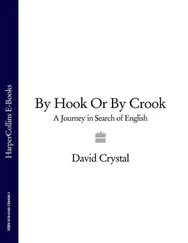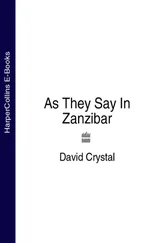With all this mega- about, the stage was set for the prefix to become an independent word. And in the late 1960s, we find it being used to mean ‘huge’ ( Those are mega achievements ), ‘excellent’ ( That’s a mega idea ) and ‘very successful’ ( She’s mega in France ). It could even be a sentence on its own. A reaction to a brilliant stage performance might simply be an awed Mega!
Quite a few prefixes have started a life of their own as words. Garments and vehicles have been called midis , minis and maxis . If someone proposes a course of action, we can be pro or anti (or con ). We can weigh up the pros and cons . If you’re an ex , you’re a former something — usually a former husband or wife, though any previous office-holder or member of an organisation could in principle be called one.
The words can go in various directions. If we hold extreme views, especially in politics or religion, we might be called ultra , or labelled one of the ultras . But ultras are also people who have extreme tastes in fashion. And since the 1970s a long-distance run of great length, especially one that is much greater than a marathon, has been called an ultra .
Multi- is another prefix that has developed a wide range of meanings as an independent word. If we heard the sentence Multis are everywhere these days , the speaker could be referring to cinemas ( multiplexes ), yachts ( multihulls ), buildings (designed for several families — multi-family houses), fashions ( multi-coloured ), very rich people ( multimillionaire s), bridge players (making an opening bid of two diamonds — multi-purpose ), international businesses ( multinationals ) or products that contain a range of vitamins ( multivitamins ). This is really quite an exceptional range of senses, and all came to be used in the second half of the 20th century. Multi , in short, has become mega.
 88. Gotcha — a non-standard spelling (20th century)
88. Gotcha — a non-standard spelling (20th century)
When The Sun reported the sinking of the Argentine cruiser General Belgrano in 1982, the headline attracted almost as much attention as the event itself: GOTCHA. And a generation on, it is the headline that has stayed in the popular mind. It was the non-standard spelling that caught the public imagination. The effect disappears when we re-spell it as GOT YOU.
Not everybody liked it. Gotcha has playful connotations. We say it when somebody is caught out in an argument or discovered in a game of hide-and-seek. Yet this was a story about war, with lives being lost. Many thought non-standard usage wasn’t an appropriate choice for such an event. But few headlines have had such staying power.
A surprising number of words appear in non-standard spelling in newspaper headlines, novels, advertisements, graffiti and other written genres. The Sun has many famous instances, such as its claim after the 1992 election, IT’S THE SUN WOT WON IT. Often it’s a pun that motivates the spelling, such as the headline reporting cases of swine flu in Britain: PIGS ’ERE.
There comes a point when a non-standard spelling becomes so frequently used that it gets into the dictionaries as an ‘alternative’ ( §61). We’ll find gotcha and gotcher in the Oxford English Dictionary , first recorded in 1932, as well as geddit? (‘get it?’, 1976), ya (‘you’, 1941), thanx (‘thanks’, 1936), gotta (‘got to’, 1924) and gonna (‘going to’, 1913). In the 19th century we find luv (‘love’, 1898), wanna (‘want to’, 1896), wiv (‘with’, 1898), dunno (‘don’t know’, 1842), wot (‘what’, 1829) and cos (‘because’, 1828). Sorta (‘sort of’) is recorded as early as 1790.

19. The front page of The Sun, 4 May 1982.
Have non-standard spellings ever become standard in recent times? The recorded examples suggest that their public presence is still quite limited. Because non-standard English is strongly associated with informal, jocular and intimate subject-matter, they typically occur in the creative, leisure, sports and comment pages of newspapers. The Sun is exceptional in using them for news. Thru for through has made great public progress in American English, where we also find it in compounds, such as drive-thru, see-thru, sell-thru and click-thru . But other forms seem to be restricted to special usages, such as Mr Chad’s graffiti use of Wot ( §10) or forms representing colloquial speech, such as Sez who?
Most often a non-standard spelling is an attempt to show a regional accent: There’s gold in tham thar hills, A man’s gotta do what a man’s gotta do , Gawd help us. But we mustn’t fall into the trap of thinking that only lower-class accents are the source of non-standard spelling. Upper-class speech can find its way into a non-standard spelling too: huntin’, shootin’ and fishin’ ; dontcha know ; she’s a nice gel .
 89. PC — being politically correct (20th century)
89. PC — being politically correct (20th century)
Political correctness has been with us longer than its current vogue might lead us to think. The phrase politically correct turns up in the US Supreme Court as early as 1793, though not with reference to language. Politically incorrect is much more recent: the first recorded usage in the Oxford English Dictionary is 1933. And the abbreviation PC is the most recent of all: 1986. PC began its life with many positive associations. Today, when someone says that a word is PC , the connotations are almost always negative. What happened?
Political correctness is a linguistic movement which went out of control. Its supporters started out with the best of intentions, drawing attention to the way language can perpetuate undesirable social discrimination in such areas as race, gender, occupation and personal development. Feminists, for example, pointed to the way masculine words, idioms and word-endings reinforced a world-view in which women were ignored or played a secondary role (as seen in all men are created equal, the man in the street, fireman, chairman ). The ‘innocent’ historical use of these expressions, they argued, was no guide. The goal had to be an inclusive language, which would avoid bias and give no offence.
In some cases, the solution was easy. It wasn’t linguistically difficult to change fireman to firefighter or all men to all people . Other changes required more ingenuity ( air steward(ess) to flight attendant ), and in some cases (such as man in the street ) the language provided no idiomatic equivalent at all. Some changes (such as chairman to chairwoman, chairperson or chair ) proved controversial, on both sides of the gender divide, and some proposed replacements were disliked because of their awkwardness (such as using he or she for he ). Many argued that the alternatives often did nothing to remove any prejudice there might be about the condition: what was the advantage of persons with disabilities over the disabled ? The negative associations simply transferred to the new term, as seen with the search for a PC expression to describe people who are handicapped/disabled/physically challenged/differently abled … or people who are black/negro/coloured/Afro-American/African-American … And what was the point of changing a label if social conditions didn’t change?
Читать дальше

 88. Gotcha — a non-standard spelling (20th century)
88. Gotcha — a non-standard spelling (20th century)
 89. PC — being politically correct (20th century)
89. PC — being politically correct (20th century)










